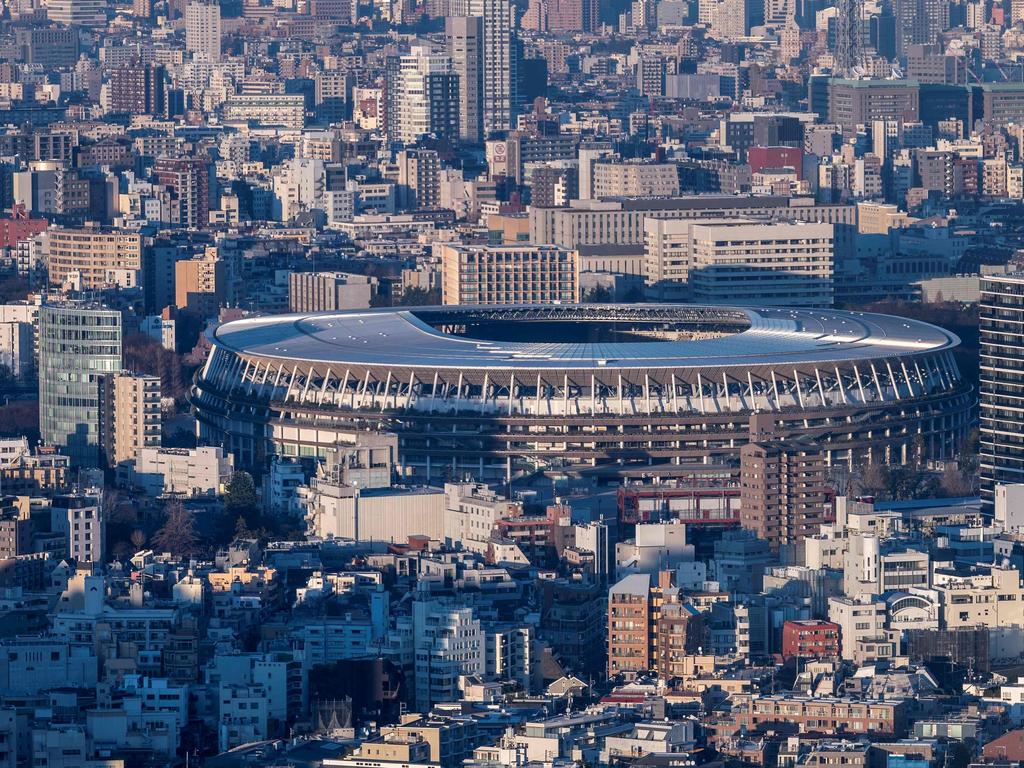Olympics organisers give giant middle finger to Tokyo
The boss of the 2021 Tokyo Olympics has gone public with a tone-deaf statement on the fate of the Games during a state of emergency.
The pandemic-postponed Olympics will go ahead this summer “however the coronavirus evolves”, Tokyo 2020 president Yoshiro Mori said Tuesday, brushing aside doubts about the event.
Organisers, Japan’s government and Olympic officials are trying to shore up support for the Games despite a surge in infections around the world, less than six months before the opening ceremony.
The concerted effort to show absolute resolve to host the games is a slap in the face to the people of Japan, who have shown the world they do not want the Games to go ahead.
A Kyodo News poll recently found 80 per cent of Japanese citizens want the Games cancelled or delayed.
The 2021 Olympics have been a trainwreck from the start.
Budget documents from a Japanese government audit in December reportedly revealed estimates the Games could cost taxpayers up to $33 billion. It is forecast to be the most expensive Olympics in the movement’s history — and there now seems no way for the country to see a return on its investment.
A report last month claimed officials behind the scenes had privately made the decision to cancel the event. This has since been strenuously denied by the IOC and the Tokyo Organising Committee.
Doubts about the Games have continued to grow as countries have been forced to re-enter lockdowns, with large parts of Japan currently under a virus state of emergency.
Mori’s decision to put on a confident persona this week is out of touch with everything that is happening around him.
RELATED: Florida’s bizarre offer to host 2021 Olympics

“We’ll certainly go ahead however the coronavirus (pandemic) evolves,” he told a meeting of Olympic organisers and members of Japan’s ruling party in Tokyo.
“We must go beyond discussion about whether we will hold it or not. It’s about how we will do it. Let’s think about a new kind of Olympics on this occasion,” he added.
Prime Minister Yoshihide Suga, meanwhile, will reportedly announce on Wednesday a month-long extension of the state of emergency — meaning the measure will run until March 7 in Tokyo and several other parts of the country.
Tighter border restrictions imposed after infections surged have already forced the postponement of some sporting fixtures including this year’s first Olympic test event, an artistic swimming qualifier that was scheduled for March.
The nationwide Olympic torch relay is still due to begin on March 25. On Wednesday, organisers are expected to outline further details of the extensive coronavirus countermeasures they have devised for the 2020 Games, which were pushed back to 2021 last March as COVID-19 spread around the globe.
Organisers have said cancelling or suspending the Games is not something even being considered, and have received strong support from both the International Olympic Committee and athletes around the world.
Olympic Minister Seiko Hashimoto told the meeting she too was confident the Games could go ahead.
“Making the Tokyo Games a success will demonstrate the world is united,” said Hashimoto, herself a former Olympian.

She said it would deliver “hopes and dreams” to the world, and “send a message that Japan can contribute to solving issues that the world faces”.
While organisers have clung to the line that the Games will open as scheduled on July 23, key decisions about the shape of the event remain — including whether foreign fans will be able to come and how many spectators will be in the venues.
Local medical associations have urged organisers to limit fans, warning the country’s healthcare system has been overburdened in the current wave of infections.
IOC chief Thomas Bach acknowledged for the first time last month that the Games could take place behind closed doors.
“This I cannot tell you,” he said, when asked if fans would be able to attend. “Our priority is to ensure safe Olympic Games and we will do whatever is needed to organise safe Olympic Games.”
The thorny question of vaccination also hangs over the event, with Olympic and Paralympic officials keen to encourage athletes to be vaccinated where possible but to avoid being seen as promoting queue-jumping.
Japan has yet to approve any coronavirus vaccines, and is not expected to start inoculating its population before late February at the earliest.
— with AFP



